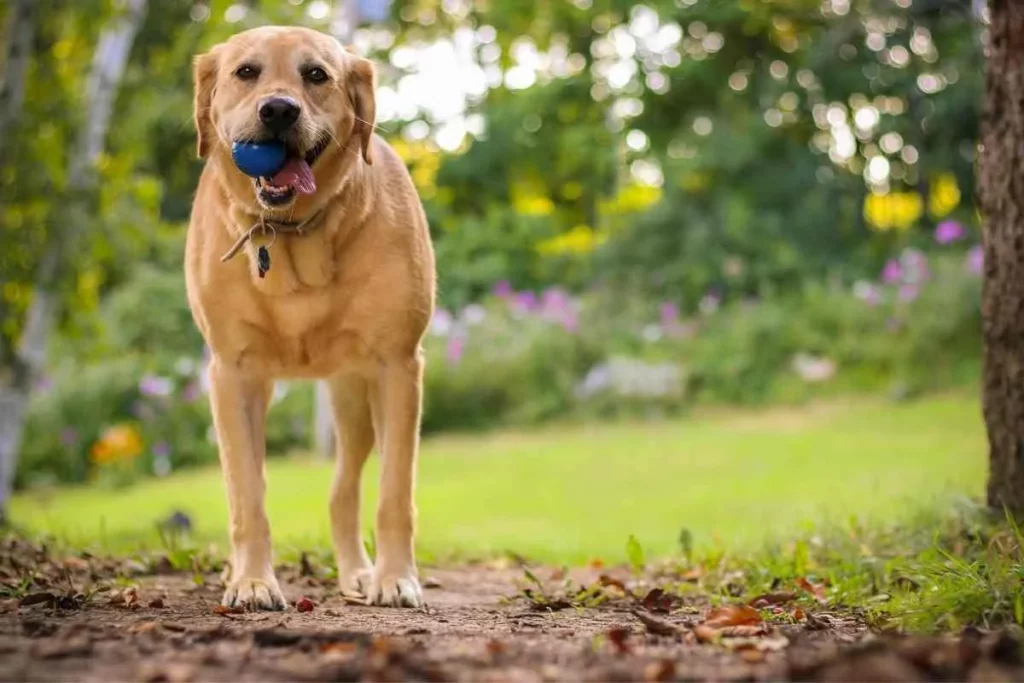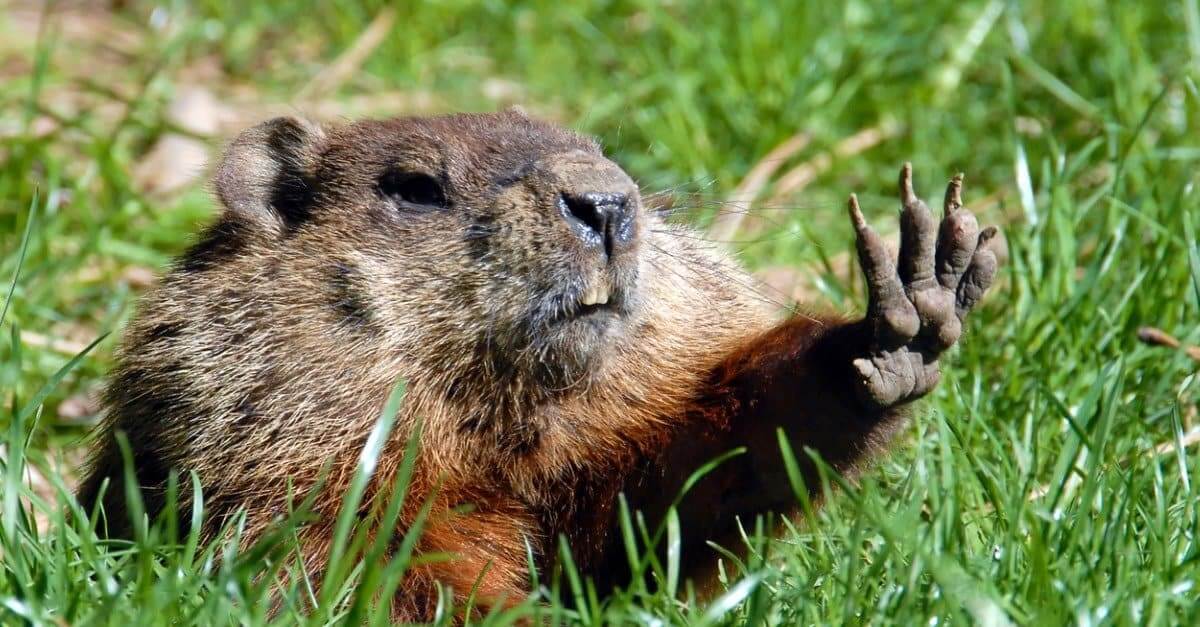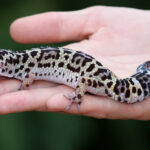Groundhogs, with their long teeth and hefty little bodies, may appear dangerous.
This raises the question of whether a groundhog will attack a dog.
Groundhogs generally avoid dogs out of fear.
Not always, though.
Yes, there have been reports of groundhogs attacking dogs.
Groundhogs have strong teeth and can spread diseases (such as rabies), so you’ll want to keep an eye out for them!
Will a Groundhog Attack a Dog?
The majority of the time, groundhogs do not attack dogs.
However, it can happen. As a result, if you have groundhogs in your yard as well as a pet dog, you need to keep an eye on the issue.
If you appreciate groundhogs, you might just want to watch for a bit.
Fights between dogs and groundhogs are uncommon since groundhogs usually recognize who is the stronger fighter!
Dogs, you see, have frequently killed groundhogs. In comparison, groundhogs are relatively little and vulnerable.
Pay attention: You just need to be concerned about the nasty, perhaps infected bites. Groundhogs are not particularly dangerous to dogs.
Are Groundhog Bites Dangerous To Dogs?

Groundhog bites are indeed dangerous to dogs.
They can easily spread diseases, even the dangerous rabies virus (although this is not super likely).
In close contact, there is also a chance of fleas and ticks, which can put you at risk for Lyme disease.
The bites are also painful, so you’ll probably want to stay away from this.
Will Dogs Keep Groundhogs Away?
Groundhogs usually stay away from dogs, which is a good thing.
Dog pee and most pee smell like ammonia, which groundhogs hate.
In fact, if you also have cats, putting dirty cat litter in their holes is a known way to keep them away.
Dogs don’t always scare away groundhogs, though. This is especially true if you have a beautiful garden full of food.
So, how do you keep them away?
How to Keep Groundhogs Away
First, you can put up decorations to keep groundhogs away from your garden.
Groundhogs are scared and confused by things that move and are brightly colored, like pinwheels that spin.
Ammonia
As we’ve already said, ammonia is also a great way to keep groundhogs away.
Sprinkle this around the yard’s edge, and it should work. Ammonia can be bought at the store, and it should work very well.
You can also make your own ammonia by mixing two tablespoons of detergent with a quarter cup of water and two cups of ammonia. This should help solve the problem.
As mentioned above, ammonia is also found in urine, so used cat litter can also work well.
Where do you think it should go?
Inside and around the burrow, as well as anywhere you think groundhogs might be a problem (around where the dog hangs out if you think your dog has been at risk).
Garlic and Pepper
You also have garlic and pepper in addition to the ammonia.
Here are two more smells that groundhogs hate and stay away from.
You can use garlic and pepper to spray not only the burrows but also the plants in your garden.
If you use a lot of this spray, it might just work.
A Fence
A fence is probably the best way to keep groundhogs off your property and away from your dog if you’re serious about it.
Chicken wire and 5-foot poles should be used to make this.
So that groundhogs can’t just dig under the chicken wire, they should be placed both above and below ground.
Also, the fence should be curved inwards and the top should be curved outwards so that they can’t climb over!
What Can You Do If Your Dog Gets Bitten By a Groundhog?
If a groundhog bites your dog, you should take them to the vet as soon as possible.
Your dog will probably be a little upset on the way there, so talk to them to make them feel better.
Since they have sharp front teeth, groundhog bites are not pleasant. As long as you get to a vet right away, most of the time the bites won’t kill your dog.
The vet will make sure your dog doesn’t get diseases like rabies, Lyme disease, and so on.
They will use disinfectants and may even give shots to keep people from getting sick. You need to act quickly, or the disease could spread before you can get to the vet.
Think positively, but act in a sensible way. If you take care of your dog, he or she probably won’t get sick.
Other Groundhog-Related Risks to Your Dog
There are risks for your pet besides getting rabies or being bitten by a groundhog.
- Roundworms: If your dog eats a dead groundhog, it could end up with roundworms.
- Ticks and fleas: Wild animals like groundhogs can give dogs ticks and fleas.
- Tularemia is a rare disease that affects the eyes, skin, lungs, and lymph nodes. It is also called “deer fly fever” or “rabbit fever.” Most hares, rabbits, and rodents like squirrels and groundhogs get sick from it. It causes chills, fever, headaches, swollen lymph nodes, and tiredness, among other things.
Even though there are risks, groundhogs aren’t known to be bad for pets. Even though your dog might chase one sometimes, groundhogs aren’t something you usually run into.
Final Words
So, will a groundhog bite a dog? A groundhog could attack your dog, but it’s not likely.
You can keep groundhogs away from your yard by taking some very effective steps.
If your dog has already been bitten, you should go to the vet as soon as possible because groundhogs can carry diseases (most notably rabies and Lyme disease).
If you have a problem with groundhogs, a fence might be the best way to keep them in check.






